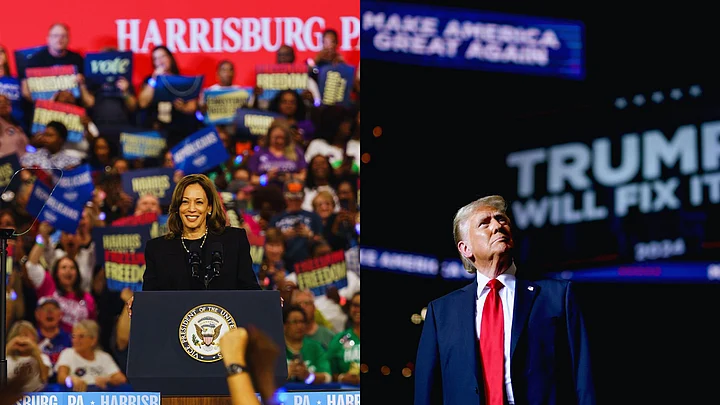The presidential election in the United States is now on a razor’s edge.
A great deal is at stake in this electoral contest as the two candidates have outlined very different policy visions for the future of the country. These competing national priorities seem to have sharply divided the electorate. Most polls suggest that small shifts in either direction could determine the outcome. Discussed here are a handful of critical factors that could tilt the delicate balance in favour of either candidate.
At the outset, the seven so-called swing states that could vote in either direction, i.e., Arizona, Georgia, Michigan, Nevada, North Carolina, Pennsylvania and Michigan, will determine the fate of the election.
According to a recent poll, the one issue that the vast majority of voters care about across these states is the economy. It is no particular surprise that both candidates have spent much time travelling across these states highlighting their likely policies to address this vital concern.
Unfortunately for Kamala Harris, despite a steadily improving economy, with inflation going down and unemployment statistics holding steady, many in the workforce feel that the country’s economic circumstances are unfavourable to them. Consequently, this sentiment about the economy, not necessarily backed by facts, could work against Harris and benefit Donald Trump.
If this belief motivates the majority of voters in these swing states, the chances of a Harris victory are slender.
Beyond these swing states, another factor that could also shape the outcome of this election involves the 75 million eligible voters who have already cast their ballots.
According to a report in The New York Times, two-thirds of eligible voters who participated in the 2020 elections are likely to vote again in this election. This high turnout could favour either of the two political parties, both of which have highly committed voters in this particular election.
However, some preliminary surveys suggest that many of these early voters are Harris supporters.
Of course, owing to the vagaries of the electoral college system in the US, it is entirely possible, as has happened in a series of recent presidential elections, that one candidate may win the popular vote but still lose the election. For example, in the 2016 election, Hilary Clinton won 2.8 million votes more than Donald Trump, but still lost the election.
Other, entirely idiosyncratic factors could also influence the outcome of this election. Barely a week ago, President Biden, responding to a series of intemperate remarks at a Trump rally, on the part of a far-right comedian Tony Hinchcliffe, appeared to refer to Trump supporters as “garbage”.
To no surprise, the Trump campaign lost no time in seizing upon Biden’s careless remark despite the White House’s attempt to clarify and deflect attention from it. However, it appears that Biden’s passing statement may have alienated some voters who may have still been on the fence. Whether or not it does any further damage remains an open question.
Apart from these considerations, the Harris campaign is counting on the organised labour vote. Historically, this segment has rallied around the Democrats. However, during Trump's time in office, despite his failure to address the concerns around organised labour, he has made some inroads into this previously solid Democratic stronghold. For example, the firefighters’ union has not endorsed either Harris or Trump. And so, it is possible that some of their members could possibly move to the Trump camp.
Finally, owing to the Republican party’s seeming intransigence on the vexed issue of abortion, it is possible that many college-educated (or even college-going) women, who may otherwise have voted for Trump, will defect from the party on this issue. Far too many Republican-controlled states have passed a series of draconian laws restricting access to abortion.
These constraints, though appealing to members of the religious right, have generated a significant backlash amongst vast swaths of women voters across the country. Not surprisingly, the Democrats in general, and the Harris campaign in particular, have made this a key issue.
Maladroit and contradictory statements on the subject on Trump’s part have also helped the Democrats drive home their message. Furthermore, JD Vance, his running mate, has not helped matters with his convoluted and disingenuous statements on the subject when questioned about his views.
Few presidential elections in recent decades have been so closely fought. What transpires on 5 November will have sweeping consequences for both the United States and the world. As millions of people wait for the results to trickle in with just hours to go, it is still too early to tell who will win and which factors will make them win.
(Sumit Ganguly is a Senior Fellow and directs the Huntington Program on US-India Relations at the Hoover Institution, Stanford University. This is an opinion piece and the views expressed are the author’s own. The Quint neither endorses nor is responsible for them.)
(At The Quint, we question everything. Play an active role in shaping our journalism by becoming a member today.)
